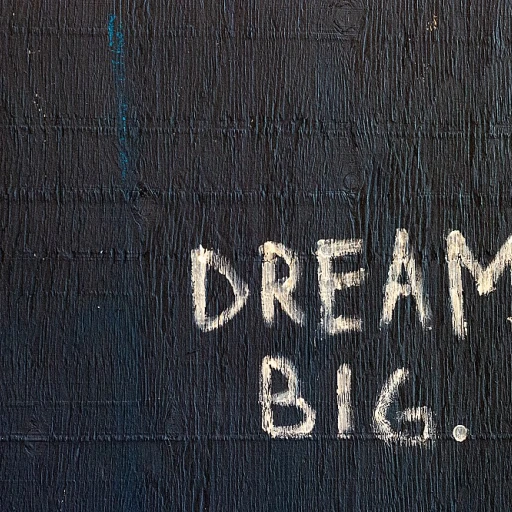
Understanding the Role of HR in Promoting Diversity
Promoting Diversity Through an Inclusive HR Approach
The role of Human Resources (HR) in promoting diversity within the workplace is pivotal. In any job, especially those concerning employment of individuals with disabilities, HR professionals are tasked with ensuring that all employees are recognized for their potential without prejudice. This involves understanding and embracing the diverse spectrum that includes autistic individuals, who often face unique challenges during job interviews. A large part of HR’s responsibility in promoting diversity lies in the design and execution of inclusive recruitment practices. Successfully achieving this means recognizing the strengths that autistic adults bring to the job. It also requires HR to actively foster a supportive environment where accommodations are not only provided but normalized, allowing autistic employees to thrive. For employers, having a workforce made up of neurodiverse individuals can enhance innovation and problem-solving. However, it demands a commitment from HR to actively dismantle any potential bias. Failing to do so can lead to unfortunate incidents such as job loss for autistic employees, or even the controversial dismissal of a hiring manager, as seen in recent case studies. Moreover, integrating neurodiversity in the workplace can involve tailored strategies to support these employees amidst the often stressful environments of job interviews and employment settings. HR professionals must strive to protect the mental health of their neurodiverse workforce by implementing full-spectrum acceptance, a component extending well beyond merely hiring practices. Emphasizing team orientation in HR job interviews is an effective way to showcase an inclusive ethos. The connection between such techniques and a diverse-friendly workplace is strong. For insight into tailoring this aspect within HR practices, take a look at these effective ways to promote inclusivity in team settings.Challenges Faced by Autistic Candidates in Job Interviews
Hurdles Faced by Autistic Individuals in Recruitment Processes
The job interview can be a daunting experience for many, but for autistic individuals, it presents unique challenges that require understanding and effective solutions. The conventional interview structure can often sideline the strengths of autistic adults, focusing instead on social and communication skills that may not accurately represent their competencies in the workplace.- Non-Verbal Communication Difficulties: Autistic candidates may struggle with reading non-verbal cues, maintaining eye contact, or interpreting body language, which can be significant in traditional job interviews.
- Unconventional Responses: Interview questions designed to gauge personality or fit, rather than skills, can disadvantage those on the autism spectrum who may provide literal or unexpected responses.
- Sensory Issues: The environments where interviews are held might be overwhelming for some autistic people due to sensory processing disorders, making it hard for them to focus or feel at ease.
- Structured Environment Needs: Many adults with autism thrive in predictable, structured settings. The unpredictability of interviews and the possibility of unexpected questions can induce anxiety.
Legal and Ethical Considerations in Hiring Practices
Legal and Ethical Guidelines to Ensure Fair Hiring Practices
In the realm of employment, particularly concerning hiring processes, it's essential to recognize the legal and ethical responsibilities tied to employment decisions involving autistic individuals. These principles play a crucial role in safeguarding against potential discrimination and fostering an inclusive environment. Employers are expected to adhere to laws that protect the rights of people with disabilities, including autistic adults. In many jurisdictions, these laws include the obligation to provide reasonable accommodations, ensuring that autistic individuals have a fair chance during job interviews and throughout their employment. Disclosing autism should not be a barrier, and employers must create an environment where autistic employees feel empowered and supported. From a legal standpoint, failure to comply with these obligations can lead to claims of disability discrimination. What's more, ethical considerations call on companies to reflect on their hiring practices, challenging any inherent biases that may exist within their systems. This also involves ensuring that all candidates are evaluated on the basis of their skills and qualifications rather than assumptions related to their autism diagnosis or spectrum disorder. The dismissal of a hiring manager for employing an autistic candidate raises questions around how employment autism should be approached within an organization. The move has underlined the need for HR departments to carefully balance following established policies while also fostering a workplace that values diverse abilities. HR professionals and employers must take proactive steps not only to avoid actions that could result in job loss due to discriminatory practices but also to actively promote diversity and inclusion in the workplace. By aligning legal obligations with ethical considerations, companies can create a supportive environment for autistic people, ensuring their integration and success as employees. For more insights on how to effectively incorporate peer recognition and address these challenges in HR job interviews, refer to this comprehensive resource.The Impact of Bias in HR Decision-Making
Bias and its Effect on Employment Decisions
In the realm of HR decision-making, bias can seep into various components, influencing employment opportunities and outcomes. Whether stemming from stereotypes or unconscious factors, biases can impact the fairness and inclusivity of the hiring process. This is particularly relevant for autistic people, who may face unique challenges that aren't always understood by employers. The concept of bias isn't limited to personal prejudice; it can also be institutional. Employers may unknowingly overlook autistic adults due to misconceptions about their capabilities or the accommodations they might require. Such biases can severely affect employment autism initiatives, leading to underrepresentation of individuals on the autism spectrum in the workplace. For an autistic employee, the experience of job loss due to underlying bias represents more than just losing work. It can impact mental health and further cement the stigma associated with autism. For employers, these actions can result in a loss of potential talent and could constitute disability discrimination, which is legally and ethically questionable. Many autistic individuals, when interviewed, have expressed that the workplace environment often does not cater to their unique needs. This can lead to an autistic person being seen as less competent, simply because they work differently. Employers must recognize that employees, regardless of background, bring diverse strengths to the table. Ultimately, addressing these biases isn't just about compliance; it's about fostering a diverse and inclusive workplace where all employees can thrive. With increased awareness and training, the HR process can be refined to combat these biases, ensuring that every individual is evaluated based on merit and fit for the role, rather than stereotypical notions.Case Study: The Dismissal of a Hiring Manager
The Dismissal Incident: A Case of Bias?
The dismissal of a hiring manager after employing an autistic candidate has ignited a conversation around bias in hiring practices. This case serves as a real-world example of the challenges that autistic individuals face in the workplace, particularly during the hiring process. The community of employers and employees alike are questioning whether the decision to terminate the hiring manager was influenced by prejudice against autism employment.
Disclosing autism during a job interview can already pose significant challenges for autistic candidates. An autistic person might feel hesitant to reveal their diagnosis due to fear of disability discrimination or bias. This apprehension is not unfounded, as demonstrated by the questions taking center stage in this dismissal incident.
Although the specific reasons for the manager's job loss remain undisclosed by the employer, it highlights the pervasive impact of bias in HR decision-making processes. Autistic employees bring unique perspectives and skills to the workplace, and failing to recognize and accommodate these differences may lead to unjust consequences for both the employee and the hiring personnel involved.
Employment for adults on the autism spectrum should be fostered through inclusive practices that do not compromise the mental health of autistic employees but rather support them effectively. The workplace must be a supportive environment where neurodiverse individuals are valued and bias is actively countered by management and HR professionals.
This situation raises substantial questions regarding the ethical considerations and potential biases that may influence employment decisions involving autistic people. It calls for a reassessment of how employers handle job interviews and hiring processes to ensure that they are inclusive and equitable for all, regardless of an applicant's autism diagnosis.
Strategies for Supporting Neurodiverse Employees
Creating an Inclusive Environment for Neurodiverse Employees
Supporting neurodiverse employees, including those on the autism spectrum, requires a thoughtful approach from employers. The workplace should be a space where every person, regardless of their disability, can thrive and contribute effectively. Here are some strategies to consider:
- Provide Clear Communication: Autistic individuals often benefit from clear and direct communication. Employers should ensure that instructions and expectations are communicated in a straightforward manner to avoid misunderstandings.
- Offer Sensory Accommodations: Many autistic adults may experience sensory sensitivities. Adjusting the work environment, such as providing noise-canceling headphones or adjusting lighting, can help create a more comfortable workspace.
- Implement Flexible Work Arrangements: Flexibility in work hours or remote work options can be beneficial for autistic employees. This flexibility can help them manage their mental health and work-life balance more effectively.
- Provide Training and Awareness: Educating all employees about autism spectrum disorders can foster a more inclusive workplace culture. Training sessions can help dispel myths and reduce stigma associated with autism.
- Encourage Open Dialogue: Creating a culture where employees feel comfortable disclosing autism or other disabilities is crucial. Employers should foster an environment where discussions about accommodations and support are welcomed.
- Develop Mentorship Programs: Pairing autistic employees with mentors can provide guidance and support, helping them navigate workplace challenges and career development.
Employers who prioritize these strategies not only support their autistic employees but also enhance the overall diversity and inclusivity of their workplace. By addressing the challenges faced by autistic candidates and employees, companies can create a more equitable and productive work environment.













